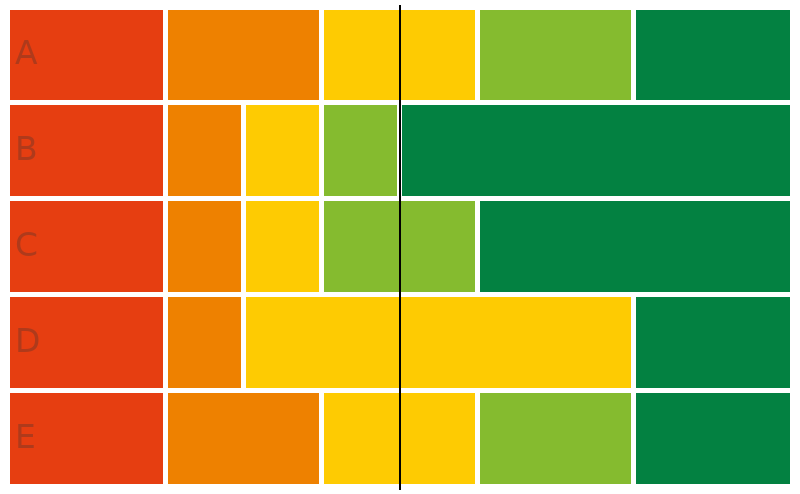|
|
3 years ago | |
|---|---|---|
| .github/workflows | 3 years ago | |
| docs | 3 years ago | |
| .tokeignore | 3 years ago | |
| LICENSE.md | 3 years ago | |
| README.md | 3 years ago | |
| analysis.go | 3 years ago | |
| analysis_test.go | 3 years ago | |
| deliberator.go | 3 years ago | |
| go.mod | 3 years ago | |
| go.sum | 3 years ago | |
| majorityjudgment.go | 3 years ago | |
| majorityjudgment_test.go | 3 years ago | |
| result.go | 3 years ago | |
| tally.go | 3 years ago | |
| tally_test.go | 3 years ago | |
README.md
Majority Judgment for Golang
WORK IN PROGRESS
- Basic Working Implementation
- Balancers (static and median)
- Decide on integer types
- Clean up and Release
A Golang module to deliberate using Majority Judgment.
It leverages a score-based algorithm, for performance and scalability.
Supports billions of judgments and thousands of proposals per poll, if need be.
Installation
NOT AVAILABLE YET
go get -u github.com/mieuxvoter/judgment
Usage
Say you have the following tally:
You can compute out the majority judgment rank of each proposal like so:
package main
import (
"fmt"
"log"
"github.com/mieuxvoter/judgment"
)
func main() {
poll := &(judgment.PollTally{
AmountOfJudges: 10,
Proposals: []*judgment.ProposalTally{
{Tally: []uint64{2, 2, 2, 2, 2}}, // Proposal A Amount of judgments received for each grade,
{Tally: []uint64{2, 1, 1, 1, 5}}, // Proposal B from "worst" grade to "best" grade.
{Tally: []uint64{2, 1, 1, 2, 4}}, // Proposal C Make sure all tallies are balanced, that is they
{Tally: []uint64{2, 1, 5, 0, 2}}, // Proposal D hold the same total amount of judgments.
{Tally: []uint64{2, 2, 2, 2, 2}}, // Proposal E Equal proposals share the same rank.
// …
},
})
deliberator := &(judgment.MajorityJudgment{})
result, err := deliberator.Deliberate(poll)
if nil != err {
log.Fatalf("Deliberation failed: %v", err)
}
// Proposals results are ordered like tallies, but Rank is available.
// result.Proposals[0].Rank == 4
// result.Proposals[1].Rank == 1
// result.Proposals[2].Rank == 2
// result.Proposals[3].Rank == 3
// result.Proposals[4].Rank == 4
// You may also use proposals sorted by Rank ; their initial Index is available
// result.ProposalsSorted[0].Index == 1
// result.ProposalsSorted[1].Index == 2
// result.ProposalsSorted[2].Index == 3
// result.ProposalsSorted[3].Index == 0
// result.ProposalsSorted[4].Index == 4
}
Balancing uneven proposals
Sometimes, some proposals receive more judgments than others, and the tallies are unbalanced. In those cases, a default judgment strategy has to be picked:
Static Default Grade
Missing (or "I don't know") judgments are considered of a grade defined in advance,
usually to reject in order to incentivize proposals to be explicit and clear.
You may use PollTally.BalanceWithStaticDefault(defaultGrade) to that effect:
pollTally := &PollTally{
AmountOfJudges: 10,
Proposals: []*ProposalTally{
{Tally: []uint64{2, 1, 2, 2, 1}}, // Proposal A
{Tally: []uint64{3, 1, 3, 1, 1}}, // Proposal B
{Tally: []uint64{0, 1, 1, 0, 0}}, // Proposal C
// …
},
}
defaultGrade := 0
pollTally.BalanceWithStaticDefault(defaultGrade)
// pollTally was mutated and now contains balanced proposals' tallies
// pollTally.Proposals[0].Tally == {4, 1, 2, 2, 1} // Proposal A is now balanced
// pollTally.Proposals[1].Tally == {4, 1, 3, 1, 1} // Proposal B is now balanced
// pollTally.Proposals[2].Tally == {8, 1, 1, 0, 0} // Proposal C is now balanced
Median Default Grade
Same behavior as static, but the default grade for each proposal is its median grade.
Use PollTally.BalanceWithMedianDefault().
Normalization
Not implemented yet ; would require either
math/bigfor LCM or floating-point arithmetic This is part of why deciding on int types is so tricky.
License
MIT 🐜
Contribute
This project needs a review by Go devs.
Feel free to suggest changes, report issues, make improvements, etc.
Some more information is available in docs/.







